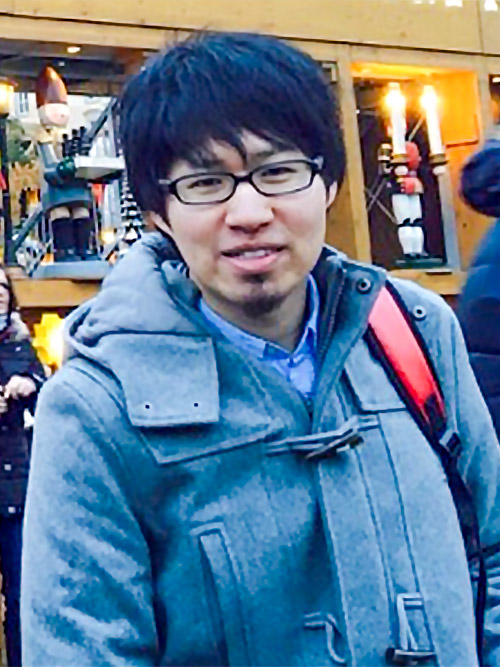天野恭子

名前
天野 恭子(あまの きょうこ)、Kyoko Amano
所属
京都大学 大学院文学研究科 インド古典学専修 准教授
(兼任)京都大学 大学院文学研究科附属 文化遺産学・人文知連携センター 人文知連携拠点
経歴
1996年、大阪大学大学院文学研究科修士課程修了(インド哲学)、2001年、フライブルク大学、印欧語比較言語学博士号取得(Dr. phil.)。大阪大学大学院文学研究科助手から子育てによる中断期間を経て、京都大学人文科学研究所日本学術振興会特別研究員(RPD)、大阪大学文学研究科招聘研究員、京都大学文学研究科非常勤講師。2017年10月より2022年9月まで京都大学白眉センター・人文科学研究所特定准教授。2022年10月より京都大学文学研究科、人文学連携研究者。2024年4月より現職。
研究
ヴェーダ文献の一つ、マイトラーヤニー・サンヒターを研究しています。同文献の言語、特にsyntax(統語論)に関わる言語現象を考察、記述してきました。2009年に同文献の一部についてのドイツ語訳および言語学的注釈を出版しましたが、未訳の部分の完成および、新発見の写本を用いた原文校訂本の出版を目指しています。2012年よりマイトラーヤニー・サンヒターの内部の言語層について考察を始め、同文献の成立過程の解明へと研究を進めています。成立背景となる当時の社会状況について特に、ヴラーティアと呼ばれる異文化的要素を持つ社会集団の存在が重要であると考え、注目しています。
著書・論文
- Maitrāyaṇī Samhitā I-II. Übersetzung der Prosapartien mit Kommentar zur Lexik und Syntax der älteren vedischen Prosa. Münchner Forschungen zur historischen Sprachwissenschaft Bd. 9. Hempen Verlag. Bremen (2009).
- "What is ‘knowledge' justifying a ritual action? Uses of yá evám véda / yá evám vidvan in the Maitrāyaṇī Samhitā." In: Aux sources des liturgies indo-iraniennes, ed. by Redard, C. / Ferrer-Losilla, J. / Moein, H. / Swennen, P., Collection Religions, Comparatisme - Histoire - Anthropologie 10, 39-68. 2019. Liège: Presses Universitaeire de Liège. (PDF 2.6MB)
- "The Development of the Uses of ha / ha vái / ha sma vái with or without the Narrative Perfect and Language Layers in the Old Yajurveda-Samhitā Texts." Lingua Posnaniensis 61, ed. by Chandotti, M. P. / Pontillo. 2019. T. Sciendo: Warszawa. 11-24. (PDF 716KB)
- “A Non-Śrauta Ritual in the Oldest Yajurveda Text. Maitrāyaṇī Samhitā IV 2 (Gonāmika Chapter). In Proceedings of the 17th World Sanskrit Conference, Vancouver, Canada, July 9-13, 2018, Section 1: Veda, ed. bh Bahulkar, Sh., Jurewicz, J., (2019), 1-27. Published by the Department of Asian Studies, University of British Columbia, on behalf of the International Association for Sanskrit Studies. DOI: 10.14288/1.0379840. URI: http://hdl.handle.net/2429/70986. UBC cIRcle Online Digital Repository (https://circle.ubc.ca).
- “Indication of Divergent Ritual Opinions in the Maitrāyaṇī Samhitā”. Houben, Jan E. M., Rotaru, Julieta, and Witzel, Michael, Vedic Śākhās: Past, Present, Future. Proceedings of the Fifth International Vedic Workshop, Bucharest 2011, (2016), 461-490.
- “Ritual Contexts of Sattra Myths in the Maitrāyaṇī Samhitā”. Pontillo, Tiziana, Dore, Moreno and Hock, Hans Heinrich, Vrātya culture in Vedic sources. Select Papers from the Panel on “Vrātya culture in Vedic Sources” at the 16th World Sanskrit Conference (28 June – 2 July 2015) Bangkok, Bangkok, (2016), 35-72.
- “Zur Klärung der Sprachschichten in der Maitrāyaṇī Samhitā”, Journal of Indological Studies vols.26/27, 2014-2015, 1-36.
- “Style and Language of the Agniciti Chapter in the Maitrāyaṇī Samhitā (III 1-5)”, Journal of Indian and Buddhist Studies. Vol. 63, No. 3, March 2015, 1161-1167.
連絡先
amano.skskrt -at- kcn.jp
個人ページ
https://researchmap.jp/7000021258
https://orcid.org/0000-0003-1549-6830
夏川浩明

名前
夏川 浩明 (なつかわ ひろあき)、Hiroaki Natsukawa
所属
大阪成蹊大学 データサイエンス学部 准教授
経歴
2013年、京都大学大学院工学研究科博士課程修了。独立行政法人日本学術振興会 特別研究員DC1、京都大学大学院工学研究科 特定助教、学術情報メディアセンター 特定助教(K-CONNEX)、カリフォルニア大学サンディエゴ校(UCSD)スクリップス海洋研究所 客員研究員を経て、2019年4月より京都大学 学術情報メディアセンター ビジュアライゼーション研究分野 特定講師。2022年4月より現職。
研究
ビッグデータ・多種多様なデータの理解を支援する情報可視化の研究に従事しています。これまで神経科学や生態学、生物学の領域で大規模なネットワーク、動的なネットワークの解析と情報可視化技術を統合したデータ駆動型の視覚的分析の研究を進めてきました。また脳機能計測を用いた視覚認知の研究の専門性を生かし、データ解析、データ変換や可視化、視覚認知に至るまで、情報可視化を通じたデータ駆動型科学の推進を目指しています。
著書・論文
- Hiroaki Natsukawa, Ethan R. Deyle, Gerald M. Pao, Koji Koyamada, George Sugihara. “A Visual Analytics Approach for Ecosystem Dynamics based on Empirical Dynamic Modeling”, IEEE Transactions on Visualization and Computer Graphics, 27(2), 506-516, (2021)
- 夏川浩明, 尾上洋介, 小山田耕二. “バイオイメージ・インフォマティクスと可視化技術を統合したユーザー主導型データ探索(特集 生物学のデータと可視化)”, 可視化情報学会誌, 40(156), 29-33, (2020)
- Yuki Ueno, Hiroaki Natsukawa, Nozomi Aoyama, Koji Koyamada. “Exploration behavior of group-in-a-box layouts”, Visual Informatics, 3(1), 38-47, (2019)
- Kozen Umezawa, Hiroaki Natsukawa, Yosuke Onoue, Koji Koyamada. “A Visual Analytics System to Support the Formation of a Hypothesis from Calcium Waves Data”, Visual Informatics, 2(1), 2-13, (2018)
- Hiroaki Natsukawa, Koji Koyamada. “Visual analytics of brain effective connectivity using convergent cross mapping”, SIGGRAPH Asia 2017 Symposium on Visualization, SA 2017 (6) 9 pages, (2017)
- Ingo Hilschenz, Yosuke Ito, Hiroaki Natsukawa, Takenori Oida, Tetsuya Yamamoto, Tetsuo Kobayashi. “Remote detected Low-Field MRI using an optically pumped atomic magnetometer combined with a liquid cooled pre-polarization coil”, Journal of Magnetic Resonance, 274, 89-94, (2017)
- Hiroaki Natsukawa, Tetsuo Kobayashi. “Cortical Activation Associated with Determination of Depth Order during Transparent Motion Perception: A Normalized Integrative fMRI−MEG Stud”, Human Brain Mapping, 36(10), 3922-3934, (2015)
連絡先
natsukawa -at- g.osaka-seikei.ac.jp
個人ページ
https://researchmap.jp/natsuhiro/
https://univ.osaka-seikei.jp/department/data_science/teacher/213
Oliver Hellwig

名前
Oliver Hellwig
所属
University of Zurich, Institut für Vergleichende Sprachwissenschaft
経歴
Oliver Hellwig studied Classical Indology, Religious Studies and Chinese in Berlin and Heidelberg. After graduation he worked at the FU Berlin, where he also completed his PhD (character recognition of Devanagari) and his habilitation on the history of Indian alchemy, at the Cluster of Excellence “Asia and Europe in a Global Context” (Heidelberg) and at the HHU Düsseldorf (SFB 991, “The Structure of Representations in Language, Cognition, and Science”).
He has built the Digital Corpus of Sanskrit (http://www.sanskrit-linguistics.org/dcs/index.php?contents=texte) which is under active development, and he was responsible for designing and implementing the frameworks of IndoSkript (http://www.indoskript.org) and of the projects “Documents on the History of Religion and Law of Pre-modern Nepal” (https://www.hadw-bw.de/forschung/forschungsstelle/religions-und-rechtsgeschichtliche-quellen-des-vormodernen-nepal) and “Online Edition of the Paippalāda Recension of the Atharvaveda” at the University of Zurich (https://www.atharvavedapaippalada.uzh.ch/en.html).
He is currently leading a “ChronBMM — Bayesian Mixture Models für die Datierung von Textkorpora” in Digital Humanities Project by Federal Ministry of Education and Research:
https://chronbmm.phil.hhu.de/
https://www.geistes-und-sozialwissenschaften-bmbf.de/de/Digital-Humanities-1710.html
Articles:
Hellwig, Oliver, Salvatore Scarlata und Paul Widmer (to appear in JAOS). “Assessing Rigvedic Strata”. In: Eingereicht bei JAOS.
Hellwig, Oliver (2019). “Dating Sanskrit Texts Using Linguistic Features and Neural Networks”. In: Indogermanische Forschungen 124, S. 1–47.
Hellwig, Oliver (2010a). “Etymological Trends in the Sanskrit Vocabulary”. In: Literary and Linguistic Computing 25.1, S. 105–118.
– (2009). “A Chronometric Approach to Indian alchemical literature”. In: Literary and Linguistic Computing 24, S. 373–383.
– (2008). “Frequent phrases and their Application to Text Segmentation”. In: Studien zur Indologie und Iranistik 25, S. 55–72.
– (2003). “Automatisierte Suche von Wortgruppen in Sanskrit-Texten”. In: Berliner Indologische Studien 15/16/17, S. 251–263.
Conference Proceedings:
Hellwig, Oliver (2020). “Dating and Stratifying a Historical Corpus with a Bayesian Mixture Model”. In: Proceedings of the LT4HALA. Hrsg. von Rachele Sprugnoli und Marco Passarotti, S. 1–9.
Hellwig, Oliver, Salvatore Scarlata, Elia Ackermann und Paul Widmer (2020). “The Treebank of Vedic Sanskrit”. In: Proceedings of the LREC. Hrsg. von Nicoletta Calzolari, Frédéric Béchet, Philippe Blache, Khalid Choukri, Christopher Cieri, Thierry Declerck, Sara Goggi, Hitoshi Isahara, Bente Maegaard, Joseph Mariani, Hélène Mazo, Asuncion Moreno, Jan Odijk und Stelios Piperidis, S. 5139–5148.
Hellwig, Oliver und Sebastian Nehrdich (2018). “Sanskrit Word Segmentation Using Character-level Recurrent and Convolutional Neural Networks”. In: Proceedings of the 2018 Conference on Empirical Methods in Natural Language Processing. Brussels: Association for Computational Linguistics, S. 2754–2763.
Hellwig, Oliver (2015). “Morphological Disambiguation of Classical Sanskrit”. In: Systems and Frameworks for Computational Morphology. Hrsg. von Cerstin Mahlow und Michael Piotrowski. Cham: Springer, S. 41–59.
Hellwig, Oliver und Sven Sellmer (2015). “Frame Semantic Annotation of Sanskrit Texts”. In: Proceedings of the SALA-31, S. 30–33.
Hellwig, Oliver (2013). “Googling the Rishi. Graph Based Analysis of Parallel Passages in Sanskrit Literature”. In: Recent Researches in Sanskrit Computational Linguistics. Hrsg. von Malhar Kulkarni und Chaitali Dangarikar. D. K. Printworld, S. 172–190.
– (2012). “Computational Processing of Sanskrit – Challenges and Perspectives”. In: 14th World Sanskrit Conference, Proceedings of the Linguistic Section. Hrsg. von Jared S. Klein und Kazuhiko Yoshida. Bremen: Hempen Verlag, S. 37–48.
Click here for more information!
連絡先
hellwig7 -at- gmx.de
京極祐希

名前
京極祐希、Yuki Kyogoku
所属
ライプツィヒ大学インド学・中央アジア研究所博士課程
プロジェクト"Divergent Discourses"リサーチアシスタント
経歴
2013年、北海道大学文学研究科博士前期課程修了後、アクセンチュア株式会社にてシステムエンジニア。2016年ライプツィヒ大学インド学・中央アジア研究所に留学。現在博士課程学生。2018年10月より、ライプツィヒ大学情報工学研究所、2022年7月からライプツィヒ大学応用情報技術研究所、2024年5月からライプツィヒ大学インド学・中央アジア研究所プロジェクト "Divergent Discourses: Processes of Narrative Construction in Tibet, 1955-62" (https://research.uni-leipzig.de/diverge/) のリサーチアシスタントを務める。
研究
仏教学と情報学という異なる2つの専門分野を持っています。仏教学の分野では、7世紀の仏教哲学者であるダルマキールティの作品を中心とした認識論・言語哲学を研究しています。現在は博士論文に向けて『プラマーナ・ヴァールッティカ』と呼ばれるサンスクリットで書かれた文献の批判校訂作成を進めています。情報学の分野では、自然言語をコンピューターで処理する自然言語処理という分野に従事しています。具体的には、クロード・シャノンの情報理論を用いて単語や文の情報量を解析し、ドイツ語の文章の自動要約やキーワード抽出に応用しています。またドイツ語・タガログ語・インドネシア語における情報量分布の比較研究もしています。
著書・論文
- Erhard, F. Xaver & Kyogoku, Yuki. (2024). Modern-Botok. Custom dictionary for modern Tibetan (v0.1) [Data set]. Zenodo.
https://doi.org/10.5281/zenodo.14034747 - Michael Richter, Maria Farre, Max Kölbl, Yuki Kyogoku (2022), "Uniform Density in Linguistic Information derived from Dependency Structures," Conference: ICAART 2022 Special Session NLPinAIVolume: Vol.1: 496 - 503. DOI:10.5220/0000155600003116.
- Max Kölbl, Yuki Kyogoku, J. Nathanael Philipp, Michael Richter, Clements Rietdorf, Tariq Yousef (2022), "Beyond the Failure of Direct-Matching in Keyword Evaluation: A Sketch of a Graph Based Solution," Frontiers in Artificial Intelligence, Sec. Language and Computation Vol. 5. https://doi.org/10.3389/frai.2022.801564
- J. Nathanael Philipp, Max Kölbl, Yuki Kyogoku, Tariq Yousef (2022), "One Step Beyond: Keyword Extraction in German Utilising Surprisal from Topic Contexts," Intelligent Computing, 774 - 786. DOI:10.1007/978-3-031-10464-0_53
- Max Kölbl, Yuki Kyogoku, J. Nathanael Philipp, Michael Richter, Clemens Rietdorf, and Tariq Yousef (2021), “The Semantic Level of Shannon Information: Are Highly Informative Words Good Keywords? A Study on German.” (to appear in the Springer series Studies in Computational Intelligence (SCI)).
- Max Kölbl, Yuki Kyogoku, J. Nathanael Philipp, Michael Richter, Clemens Rietdorf and Tariq Yousef (2020), “Keyword Extraction in German: Information-theory vs. Deep Learning,” Proceedings of the 12th International Conference on Agents and Artificial Intelligence, ICAART 2020, Volume 1, Valletta, Malta, February 22-24, 2020, Volume 1, 459-464.
- Michael Richter, Yuki Kyogoku and Max Kölbl (2019), “Estimation of Average Information Content: Comparison of impact of contexts,” Intelligent Systems and Applications – Proceedings of the 2019 Intelligent Systems Conference, IntelliSys 2019, London, UK, September 5-6, 2019, Volume 2, Springer. 1251-1257.
- Michael Richter, Yuki Kyogoku and Max Kölbl (2019), “Interaction of Information Content and Frequency as Predictors of Verbs’ Lengths,” Business Information Systems – 22nd International Conference, BIS 2019, Seville, Spain, June 26-28, 2019 Proceedings, Part I, Springer. 271-282.
連絡先
kyogoku11 -at- gmail.com
宮川創

名前
宮川創、So Miyagawa
所属
筑波大学 人文社会系 准教授
(兼任)西アジア文明研究センター
経歴
京都大学大学院文学研究科行動文化学言語学専修、博士前期・後期課程を経て、ゲッティンゲン大学エジプト学コプト学専修。2022年3月、ゲッティンゲン大学Dr. phil. 2015年10月から2020年3月まで、ゲッティンゲン大学に設置されている、ドイツ研究振興協会・特別研究領域/共同研究センター1136「古代から中世及び古典イスラム期にかけての地中海圏とその周辺の文化における教育と宗教」において研究員。2020年度に関西大学アジア・オープン・リサーチセンター「KU-ORCAS」ポスト・ドクトラル・フェロー (PD)、2021年度に京都大学大学院文学研究科附属文化遺産学・人文知連携センター助教、2022年より国立国語研究所研究系テニュアトラック助教、2024年4月より現職
研究
文献や言語資料などの文化遺産・言語資源のデジタル化で、TEI(テキスト構造化)やIIIF(国際的な画像の相互運用の枠組み)などのデジタル人文学での世界標準を活用しています。研究分野としては、言語学(主に日本語、琉球諸語、コプト語を含むエジプト語史と古ヌビア語と新約聖書ギリシア語)を、人文情報学(デジタル・ヒューマニティーズ)や自然言語処理・コーパス言語学の手法も使いながら、研究しています。アジア・アフリカの言語の音韻論と文字論と類型論、言語の変化、宗教と文献デジタル化に研究における関心があります。文献学も研究していて、現在まで、日本語・沖縄語の聖書翻訳、コプト語・古ヌビア語聖書翻訳、新約聖書ギリシア語原典、70人訳ギリシア語旧約聖書、コプト語以前の古代エジプト語文献、およびそれらの言語の音韻と文法と言語接触を研究してきました。
著書・論文
- So Miyagawa, Kanji Kato, Miho Zlazli, Salvatore Carlino, Seira Machida (2023), "Building Okinawan Lexicon Resource for Language Reclamation/Revitalization and Natural Language Processing Tasks such as Universal Dependencies Treebanking," Nikolai Ilinykh, Felix Morger, Dana Dannélls, Simon Dobnik, Beáta Megyesi, Joakim Nivre (eds.), Proceedings of the Second Workshop on Resources and Representations for Under-Resourced Languages and Domains (RESOURCEFUL-2023), Stroudsburg, PA: Association for Computational Linguistics (ACL), 86 - 91.
- 宮川創 (2023),「言語資源デジタルアーカイブにおけるキュレーション:「国立国語研究所デジタルアーカイブNINDA」の事例から」『情報知識学会誌』 33(2), 156 - 161.
- 田口智大, 宮川創 (2023)「形態論情報付き日本語 Universal Dependencies」『言語処理学会第29回年次大会 発表論文集』言語処理学会, 732 - 737.
- Miyagawa, So, (2022)“Digital History of Egypt in the Roman and Byzantine Periods: A Case Study of Shenoute the Archimandrite,”Historical Studies of the Western World 1, 26-33.
- Miyagawa, So, (2021) “Digitization of Coptic Manuscripts and Digital Humanities: Tools and Methods for Coptic Studies,”The International Journal of Levant Studies 2, 29-61.
- 一般財団法人人文情報学研究所, 石田 友梨, 大向 一輝, 小風 綾乃, 永崎 研宣, 宮川 創, 渡邉 要一郎, 『人文学のためのテキストデータ構築入門: TEIガイドラインに準拠した取り組みにむけて』文学通信 2022年8月4日 (ISBN: 490965884X).
- 一般財団法人人文情報学研究所, 小風 尚樹, 小川 潤, 纓田 宗紀, 長野 壮一, 山中 美潮, 宮川 創, 大向 一輝, 永崎 研宣, 『欧米圏デジタル・ヒューマニティーズの基礎知識』文学通信 2021年7月26日 (ISBN: 4909658580).
- Nakano, Tozen (orig.), Toyomi Hirai, James P. Wills, Yuki Kyogoku, So Miyagawa, (trans.) (2019) TEXTBOOK: Thanatology of Buddhism: Meta-Cognition,Grief Care Resilience. Fueisha.
- Caroline T. Schroeder, Ulrich Schmid, So Miyagawa, Elizabeth Platte, Amir Zeldes, (2019) KELLIA White Paper on Transcription and Encoding Standards for Digital Coptic. National Endowment for the Humanities.
- Miyagawa, So, Kirill Bulert, Marco Büchler, Heike Behlmer, (2019)“Optical character recognition of typeset Coptic text with neural networks,”Digital Scholarship in the Humanities 34 (Suppl. 1), i135-i141.
連絡先
miyagawa.so.kb -at- u.tsukuba.ac.jp
個人ページ
https://researchmap.jp/SoMiyagawa
https://somiyagawa.com/
https://somiyagawa.de/
https://orcid.org/0000-0002-2950-7193
塚越柚季

名前
塚越柚季、Yuzuki Tsukagoshi
所属
東京大学大学院人文社会系研究科附属次世代人文学開発センター人文情報学部門助教
経歴
2023年3月 東京大学大学院人文社会系研究科博士課程修了、2023年3月 博士(文学)。2020年4月-2023年3月 日本学術振興会特別研究員DC1。2023年4月より現職。2023年8月より科研費、研究活動スタート支援により「ヴェーダ文献テクストの構造化およびテクスト間の言語的関係の解明」(2025年3月まで)が進行中。
https://kaken.nii.ac.jp/grant/KAKENHI-PROJECT-23K18646
研究
初期サンスクリット語が用いられるヴェーダ文献の中でも最古の文献『リグ・ヴェーダ』を主に対象とし、言語学的観点から韻律および詩節創作者らの関係を研究している。それと並んで、ヴェーダ文献を対象とした自然言語処理の活用、ヴェーダ文献研究をより大規模かつ検証可能なものにするためのテクストの構造化にも従事している。たとえば、テクスト中の語に対して言語学的情報などを付与することで著者と言語使用の相関を導くことを可能にする。またこのようなテクストの情報表現や機械学習手法などを利用し、文献学的成果の客観的な検証、ヴェーダ文献の新たな知見を広げることを目指す。
著書・論文
- Ikki Ohmukai, Yuzuki Tsukagoshi (2024), "N-gram-Based Preprocessing for Sandhi Reversion in Vedic Sanskrit", Proceedings of the 4th International Conference on Natural Language Processing for Digital Humanities, 275-279.
- Yuzuki Tsukagoshi, Ikki Ohmukai (2024), "The Metronome Approach to Sanskrit Meter: Analysis for the Rigveda", Proceedings of the 1st Workshop on Machine Learning for Ancient Languages (ML4AL 2024), 219-223.
- 塚越柚季 (2023)「デジタルサンスクリット辞書によって追加学習された大規模言語モデルを用いたサンスクリット辞書の横断検索」研究報告 人文科学とコンピュータ(CH)2023-CH-133 (7), 1-4.
- 塚越柚季 (2022) 「文字単位n-gramの翻訳によるヴェーダ・サンスクリットの連声解除」『じんもんこん2022論文集』33 - 38.
- Yuzuki Tsukagoshi (2021), "POS tagging for Vedic Sanskrit using deep learning", Proceedings of JADH conference 2021, 69-71.
- 塚越柚季 (2018)「『リグ・ヴェーダ』の韻律における印欧祖語の喉音の反映と方言差」日本言語学会第157回大会, 2018年11月17日.
連絡先
yuzuki@l.u-tokyo.ac.jp
